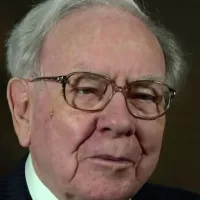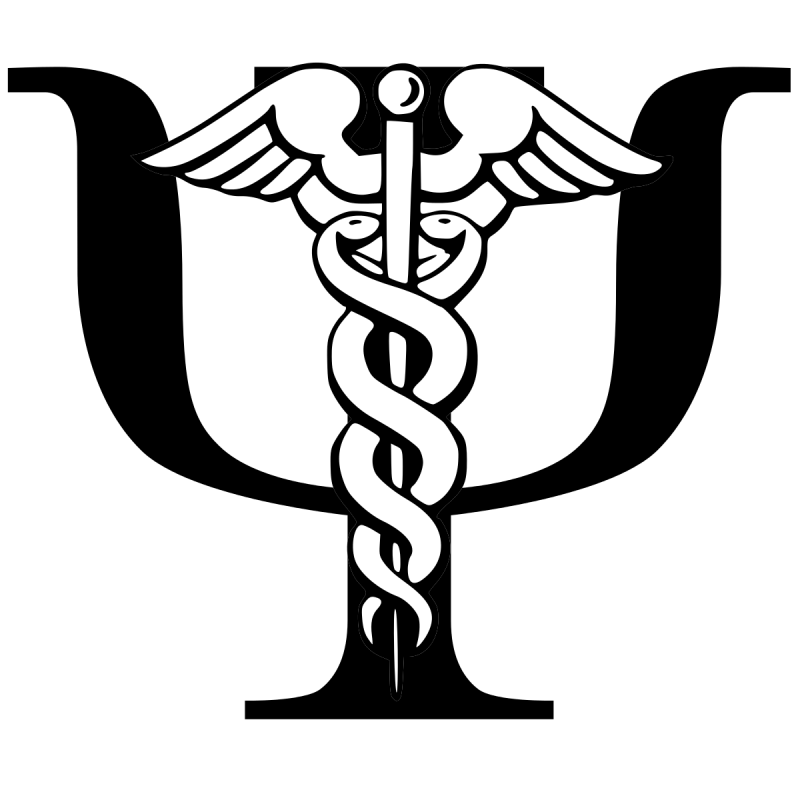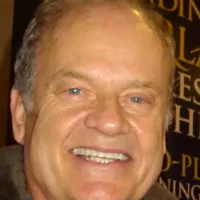1993: Wang Chuanfu Recognizes Market Shift
In 1993, while working at the Beijing Nonferrous Research Institute, Wang Chuanfu observed Japanese companies shifting from NiCd to NiMH and Li-ion batteries, recognizing a potential business opportunity.
February 1995: BYD Founded, Focusing on NiCd Batteries
Founded on February 10, 1995, BYD initially concentrated on producing rechargeable nickel-cadmium (NiCd) batteries. Wang Chuanfu, the founder, identified this opportunity after noticing Japanese companies shifting away from NiCd to newer battery technologies.
February 1995: BYD Company Founded
In February 1995, Wang Chuanfu founded BYD Company Limited in Shenzhen, Guangdong province, China. The company initially focused on producing rechargeable nickel-cadmium (NiCd) batteries.
1995: BYD's Origins as a Battery Company
BYD was established in 1995, initially focusing on battery technology and manufacturing. This foundation in battery production laid the groundwork for the company's future expansion into the automotive industry.
1997: BYD Relocates and Secures Orders
Struggling to gain traction in its early years, BYD relocated its operations and research institute to Longgang, Shenzhen, in 1997. This move proved beneficial as BYD began receiving orders from multinational companies.
July 2002: BYD Becomes Leading NiCd Battery Manufacturer
By July 2002, BYD's cost-effective manufacturing process propelled the company to become the world's leading manufacturer of NiCd batteries, holding a 65% share of global production.
2002: BYD Electronics Established as a Subsidiary
In 2002, BYD established BYD Electronics as a subsidiary specializing in manufacturing handset components and assembling mobile phones.
January 2003: BYD Acquires Qinchuan Auto
In a move that surprised many, Wang Chuanfu decided to acquire Xi'an Qinchuan Auto Company Limited in January 2003, despite facing opposition from BYD's board. This acquisition was strategic as it allowed BYD to enter the restricted Chinese automobile industry by obtaining Qinchuan Auto's manufacturing license.
2003: BYD Auto Established
BYD established its largest subsidiary, BYD Auto, in 2003, marking its entry into the automotive industry.
2003: BYD Enters the Automotive Industry
BYD made a significant move in 2003 by entering the automotive industry with the establishment of BYD Auto. Leveraging its expertise in battery technology, the company aimed to combine its battery capabilities with vehicle manufacturing.
April 2005: BYD Launches First Car, the F3
BYD commenced production of its first car, the BYD F3, in April 2005, marking a significant step in its automotive journey.
February 2008: BYD Electronics Acquires Mirae Hungary
BYD Electronics expanded its global presence by acquiring Mirae Hungary Industrial Manufacturer Ltd in February 2008, gaining a production base in Komárom, Hungary.
March 2008: Former BYD Executive Arrested
Following the withdrawal of civil proceedings, Foxconn pursued criminal prosecution against BYD in mainland China. In March 2008, this led to the arrest of BYD's former executive director and vice president, along with two former Foxconn employees who received prison sentences.
September 2008: Berkshire Hathaway Invests in BYD
In September 2008, MidAmerican Energy Holdings, a subsidiary of Warren Buffett's Berkshire Hathaway Inc., made a significant investment of US$230 million for a 10% stake in BYD.
2008: BYD Introduces First Plug-in Hybrid Vehicle
In 2008, BYD introduced its first plug-in hybrid vehicle, the BYD F3 DM, showcasing its commitment to developing electric vehicle technologies.
2009: BYD Launches First Battery Electric Vehicle
BYD launched its first production battery electric vehicle, the BYD e6, in 2009, further solidifying its presence in the EV market.
2009: Automotive Business Dominance
By 2009, BYD's automotive business had become a significant revenue generator, contributing over 50% of the company's total revenue.
2009: BYD Establishes Forklift Manufacturing Subsidiary
In 2009, BYD expanded its operations by establishing BYD Forklift, headquartered in Zhenjiang, Shaoguan. This subsidiary focuses on the development and production of electric forklifts.
2010: BYD Recognized for Innovation by BusinessWeek and Fast Company
BYD earned recognition for its innovative capabilities in 2010, with BusinessWeek ranking it as the eighth most innovative company globally and Fast Company placing it as the 16th most innovative.
2010: BYD Listed on Bloomberg Businessweek Tech 100
BYD was recognized for its rapid growth and technological advancements by securing a spot on the 2010 Bloomberg Businessweek Tech 100 list.
2014: BYD Enters the Electric Forklift Market
BYD Forklift began marketing its electric forklifts in 2014, marking the company's entry into the electric forklift market.
2015: BYD Opens First Electric Bus Factory in Brazil
BYD established its presence in the Brazilian electric bus market by opening its first factory in the country in 2015. This facility marked a significant step in BYD's international expansion plans and its commitment to sustainable transportation solutions.
2016: BYD Wins Zayed Future Energy Prize
BYD's commitment to sustainable energy solutions was acknowledged in 2016 when it received the prestigious Zayed Future Energy Prize in the Large Corporations category. The award recognized BYD's development of robust and rechargeable batteries.
2016: BYD Unveils Skyrail Monorail Prototype
In 2016, BYD unveiled its "Skyrail" monorail prototype, signaling the company's ambition to enter the global rail transit market.
April 2017: BYD Inaugurates Second Plant in Brazil for Photovoltaic Modules
BYD expanded its presence in the renewable energy sector by inaugurating its second manufacturing plant in Brazil in April 2017. This facility was specifically dedicated to producing photovoltaic modules, highlighting BYD's commitment to solar energy solutions.
2017: BYD Receives Innovation Award from PV Magazine
BYD's battery storage system earned the top innovation award from PV Magazine in 2017. The system was recognized for its advancements in modularity, charging and discharging capacity, and overall efficiency, showcasing BYD's commitment to cutting-edge energy storage solutions.
2017: BYD Auto Sales Slowdown Begins
Between 2017 and 2019, BYD experienced a decline in net profits due to a slowdown in BYD Auto's sales, marking a challenging period for the company.
2018: First Public Skyrail Line Opens
The first public Skyrail line, a 9.7 km loop, commenced operations at the Yinchuan flower expo in 2018.
May 2019: Formation of FinDreams Battery Co., Ltd.
FinDreams Battery Co., Ltd. was established in May 2019, succeeding BYD Lithium Battery Co. Ltd., which was originally founded in 1998.
December 2019: BYD Initiates Formation of FinDreams Subsidiaries
BYD began the process of establishing its FinDreams subsidiary companies in December 2019, marking a significant step in its corporate strategy.
2019: BYD Opens Bus Plant in Canada
BYD expanded its global manufacturing footprint by opening a bus plant in Newmarket, Ontario, Canada, in 2019. This strategic move aimed to cater to the growing demand for electric buses in the Canadian market.
2019: BYD Faces "Darkest Moment"
In 2019, BYD's net profit plummeted to CN¥ 1.6 billion, leading to a period described by Wang Chuanfu as the company's "darkest moment," emphasizing the struggle for survival.
March 2020: BYD Launches FinDreams Automotive Supplier Companies
In March 2020, BYD announced the establishment of four automotive supplier companies under the brand name "FinDreams." This strategic move aimed to expand the sales of BYD components to other companies in the automotive industry.
April 2020: BYD Files Defamation Lawsuit Against Vice Media
In April 2020, BYD, represented by attorney Charles Harder, filed a federal civil complaint against Vice Media in the U.S. District Court, Southern District of New York, alleging defamation. The lawsuit stemmed from a Vice Media story published on April 11, 2020, that accused BYD of using forced Uyghur labor in its supply chain.
2020: BYD Electronics Becomes Apple iPad OEM
BYD Electronics secured a major contract in 2020, becoming one of the original equipment manufacturers (OEM) for Apple's iPad.
2020: Establishment of BYD Semiconductor
BYD diversified its operations by establishing BYD Semiconductor in 2020. This strategic move aimed to strengthen the company's presence in the research and development of semiconductor technology.
2020: BYD Receives State Subsidies
Despite the challenges in 2019, BYD received significant state subsidies in 2020, amounting to €2.1 billion, aiding the company's recovery.
2020: BYD Opens Third Plant in Brazil for Lithium Iron Phosphate Batteries
In 2020, BYD further solidified its position in the Brazilian electric vehicle market by opening its third manufacturing plant in Manaus. This facility focuses on producing lithium iron phosphate batteries, a key component for electric buses, demonstrating BYD's commitment to vertical integration and local production.
2020: BYD Transitions Parts and Components Division into FinDreams Subsidiaries
In a strategic move to streamline operations and enhance market reach, BYD transitioned its parts and components division into independent subsidiary companies in early 2020. These subsidiaries, collectively known as FinDreams, were empowered to operate autonomously, facilitating the supply of components to other automotive manufacturers.
March 2021: BYD's Defamation Case Against Vice Media Dismissed
The defamation lawsuit filed by BYD against Vice Media was dismissed with prejudice in March 2021.
September 2021: BYD Sparks Controversy by Appointing Influencer Known for Antisemitic Views as Spokesperson
BYD faced criticism and controversy in September 2021 for its decision to appoint Lu Kewen, an online influencer known for promoting antisemitic tropes, as a company spokesperson.
November 2021: BYD Employee's Death Raises Concerns About Overtime Work Practices
The death of a 36-year-old BYD employee in November 2021 raised concerns about the company's overtime work practices. While the cause of death remained unclear due to the lack of an autopsy, the employee's family attributed his sudden passing to intense overtime work. BYD subsequently provided a compensation payment of ¥200,000 RMB to the deceased employee's family.
November 2021: FinDreams Battery Expands Production Capacity
By November 2021, FinDreams Battery had established 15 major production bases across more than 10 cities in China, demonstrating its significant growth in battery production capacity.
2021: BYD Increases R&D Investment and Personnel
BYD significantly increased its investment in research and development in 2021, with a 7.0% year-on-year rise, reaching a total of 7.99 billion yuan. The company also expanded its R&D workforce by 12.9%, reaching 40,382 employees, demonstrating its commitment to technological innovation.
March 2022: BYD Ends Internal Combustion Engine Vehicle Production
In a strategic move to fully embrace electric mobility, BYD ceased production of pure internal combustion engine vehicles in March 2022, focusing solely on plug-in electric vehicles.
July 2022: BYD Electronics Opens iPad Factory in Vietnam
Expanding its manufacturing capabilities, BYD Electronics commenced operations at its iPad factory in Vietnam in July 2022, located in the Phu Ha industrial park, Phú Thọ province.
November 2022: BYD Cancels IPO of Semiconductor Unit
In November 2022, BYD decided to cancel the planned initial public offering (IPO) of its semiconductor unit, BYD Semiconductor Co., Ltd. This strategic decision was driven by the company's intent to prioritize and increase investments in wafer production capacity.
2022: Automotive Revenue Reaches 76%
BYD's automotive business continued its growth trajectory, reaching a peak contribution of 76% to the company's total revenue in 2022.
2022: BYD and FAW Group Begin Construction of Battery Plant
BYD, holding a 51% share, partnered with FAW Group to start building a joint venture battery plant called FAW-FinDreams in 2022. Located in Changchun, Jilin, the plant is designed to have a 45 GWh production capacity.
2022: FinDreams Battery Achieves Third Place in Global EV Battery Market
During the first half of 2022, FinDreams Battery secured its position as the world's third-largest producer of electric vehicle batteries, capturing a significant 12 percent share of the global market.
2022: BYD's Automotive Revenue Surges
In 2022, BYD's automotive and related products generated a revenue of approximately CN¥ 324.691 billion, demonstrating a substantial year-on-year increase of 151.78%.
2022: US Department of Commerce Investigates BYD for Tariff Circumvention
In 2022, The United States Department of Commerce initiated an investigation into BYD, alleging that the company had engaged in practices to circumvent tariffs imposed on solar panels. The investigation centered on suspicions that BYD had routed its operations through Southeast Asian countries to avoid the tariffs.
June 2023: FinDreams Battery Announces Sodium-Ion Battery Joint Venture
FinDreams Battery entered into a joint venture with Huaihai Holding Group in June 2023, aiming to create the world's largest supplier of sodium-ion batteries, a move that could revolutionize the electric vehicle and energy storage sectors.
July 2023: First Battery Pack Produced at FAW-FinDreams Plant
A significant milestone was reached in July 2023 when the first battery pack rolled off the production line at the FAW-FinDreams plant.
August 2023: US Department of Commerce Determines Tariff Circumvention by BYD
Following an investigation, the U.S. Department of Commerce issued a final determination in August 2023, concluding that BYD had indeed circumvented tariffs on solar panels.
August 2023: BYD Agrees to Acquire Jabil Factories in China
In August 2023, BYD took a significant step towards strengthening its supply chain by agreeing to acquire several Chinese factories operated by Jabil, a major component supplier to Apple.
September 2023: FAW-FinDreams Battery Plant Commences Operations
The FAW-FinDreams battery plant, a joint venture between BYD and FAW Group, officially started its operations in September 2023.
January 2024: Construction Begins on Sodium-Ion Battery Manufacturing Plant
Construction of a new sodium-ion battery manufacturing plant commenced in January 2024, a collaborative effort between FinDreams Battery and Huaihai Holding Group. This substantial project, with an estimated cost of CN¥10 billion (US$1.4 billion), aims to achieve a 30 GWh annual production capacity, signaling a major step forward in sodium-ion battery technology.
February 2024: BYD's FinDreams Battery Secures Agreement with BorgWarner to Supply Blade Cells for Global Battery Production
In February 2024, FinDreams Battery, a subsidiary of BYD, entered into a significant 8-year agreement with BorgWarner, a leading American automotive supplier. Under this agreement, FinDreams Battery will supply BorgWarner with its advanced blade cells, which will be used in the manufacturing of lithium iron phosphate (LFP) battery packs. These battery packs will be produced in various regions, including Europe, the Americas, and several Asia Pacific countries. This partnership grants BorgWarner an intellectual property license, enabling them to utilize FinDreams Battery's battery pack design and manufacturing processes, strengthening their position in the EV battery market.
May 2024: BYD Electronic International Added to Hang Seng Index
In May 2024, BYD Electronic International Co. was recognized for its significance in the market and was subsequently added to Hong Kong's Hang Seng Index.
2024: US Defense Funding Ban Proposed
In 2024, the US proposed a ban on defense funding for BYD batteries due to security concerns outlined in the National Defense Authorization Act.
Mentioned in this timeline

Warren Buffett is a highly successful American investor and philanthropist...

The iPad is a line of tablet computers designed developed...

An apple is a widely cultivated edible fruit originating in...
Hong Kong is a Special Administrative Region of the People's...
China officially the People's Republic of China PRC is an...

Berkshire Hathaway is an American multinational conglomerate holding company led...
Trending

8 months ago Trump Administration Cancels $1 Billion in Mental Health Grants, Sparking Controversy.

2 months ago Sebastian Korda faces Lorenzo Sonego in the Paris Masters 2025 Round-of-64.

3 months ago Andrey Rublev vs. Cameron Norrie: ATP Vienna 2025 Clash Prediction and Match Preview

2 months ago Dolly de Leon eyes 'Heidi Fleiss' role, joining Aubrey Plaza in Hollywood.

6 months ago Frank Ocean Expands Homer Jewelry and Announces Directorial Debut with Taylor Russell.

3 months ago Idris Elba stars in Kathryn Bigelow's 'House of Dynamite', a terrifying Best Picture contender.
Popular

XXXTentacion born Jahseh Dwayne Ricardo Onfroy was a controversial yet...

Stranger Things created by the Duffer Brothers is a popular...

Kelsey Grammer is an accomplished American actor producer and singer...

Marco Rubio is an American politician attorney and diplomat He...

Candace Owens is an American conservative political commentator and author...

Bernie Sanders is a prominent American politician currently serving as...